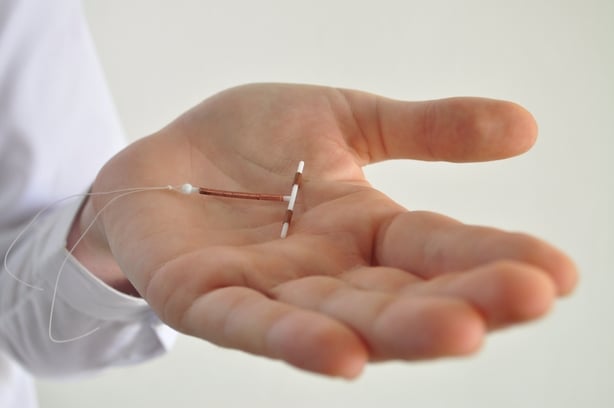With the government's free contraception scheme set to expand at the beginning of September, including those aged between 16 and 30, choosing the right contraception for your body will become more important for those planning to adopt it.
It couldn't be coming at a better time: contraception has become even more of a talking point in recent years.
Amy Morgan, a GP in Louth, joined Today with Claire Byrne to discuss how social media trends have changed how people are choosing contraception.

Under the contraception scheme currently, those aged between 17 and 25 can avail of free contraception. Before this, they would have had to pay for a contraception consultation with their GP, as well as for fitting devices like the coil or the bar.
Because of this, Morgan says the new scheme has allowed more women to access contraception.
"I'm seeing women, particularly younger women, who may not have come to me before just due to prohibitions around cost, particularly if they were going for something like a device, there would have been a not insignificant cost attached to the buying of the device and then accessing a specialist to insert the device."
Morgan added that usually the pill was seen as the "cheapest, day-to-day option" for many women, saying that "while it is a very effective form of contraception, it's been around an awfully long time and we're very familiar with it, there's certainly – if you're going to put a league table of the effectiveness of the contraceptive methods against each other, it wouldn't be our most effective contraceptive option".
'Fit and forget' methods, such as the bar and the coil, are becoming more popular as you don't have to remember to take a pill everyday, as well as the coil having two options: the hormonal and non-hormonal versions.

When it comes to finding the right contraceptive for you, Morgan said it begins with a consultation with your GP. During this, the GP will go through your medical history, looking at what you tried before and what your goals are.
The Ballerine copper coil, a hormone-free option, has become especially popular, she added, due to it being covered under the contraceptive scheme and being a smaller device.
"It's very small compared to the other copper devices that were out there, it's licensed for five years and it looks different to the other copper coils", Morgan said. "They're like little spheres of copper.
"They actually look like a very small piece of jewellery, if you see it."
Social media is playing a key role in educating women on contraception options like the Ballerine, Morgan says, as well as leading more women to come off hormonal contraception.
While doing so might not be recommended in every case, Morgan said it's essentially a "rejig" of the natural family planning method of contraception.
This was previously used by women to understand their menstrual cycles if they were trying to become pregnant, but there are apps and devices now available that allow you to check your body temperature so you know when to have or avoid sex, depending on your fertility goals.

With fertility-based methods of contraception, however, she said, "you really have to know what you're doing".
"It's not that I'm presuming somebody doesn't understand their body, and I think there is certainly a positive aspect where women are looking to gain more education about what they're menstrual cycle is like, and that's to be welcomed.
"But it probably makes me nervous knowing the effectiveness of the various different methods compared to each other, and if they're solely relying on that as their contraceptive method, it does require an awful lot of work. It's a temperature check every day and that's just one measure that you need."
She added that "people have unpredictable lives" that can alter how their body is working from one month to the next.
As for men, while there isn't a widely available contraceptive pill or device currently, Morgan points to vasectomy as an effective option for couples who feel "their family is complete".
Talk to your GP before making changes to your contraception method.
For more information on contraceptives, click here.
